Julie Clements’ route to Sacramento includes a dog sled.
Now, she says she is “living my dream,” being a full-time ceramic fine artist in Sacramento, with a body of work that includes detailed sculptures of exotic and domestic wildlife — lemurs, marmosets, guenons, black bears, deer — that she creates in her home studio. But before she got here, Clements, originally from Atlanta, Georgia, had a 15-year career as a veterinarian technician. And it started with that dog-sled gig.
Clements participated in Sac Open Studios for the first time this
September; she showed rabbit and black bear masks, among other
works. (Photo courtesy of Julie Clements)
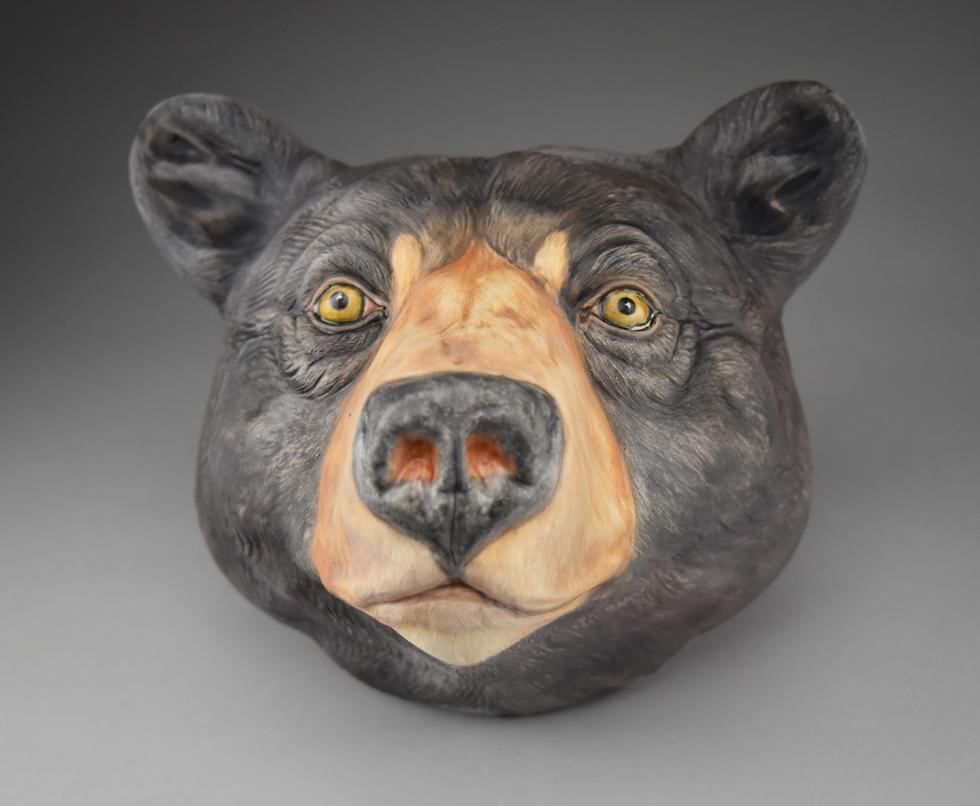
The dog-handler job was a summer gig for a dog-sled tour company, and through it she began assisting the dogs’ veterinarian and, after the tour season concluded, continued to assist him for a few years. “He had a bush service,” she says. “He would fly out on planes, (and) he had his own sled dogs” that he would mush to villages and other remote areas to offer veterinarian services.
Clements says she then worked at a clinic in Fairbanks, then moved to California with her partner (whom she met in 2003 in Alaska) so he could go to law school. She worked for the Monterey Bay Aquarium, then the San Francisco Zoo. Her last move was three years ago, to Sacramento, so she could switch her career path into being a professional artist. Three years in, she says she is still finding her footing.
“As a vet tech, you get to get really close to animals and
understand what they look like, which is a perfect reference if
you want to make art about animals,” Clements says. (Photo
courtesy of Julie Clements)
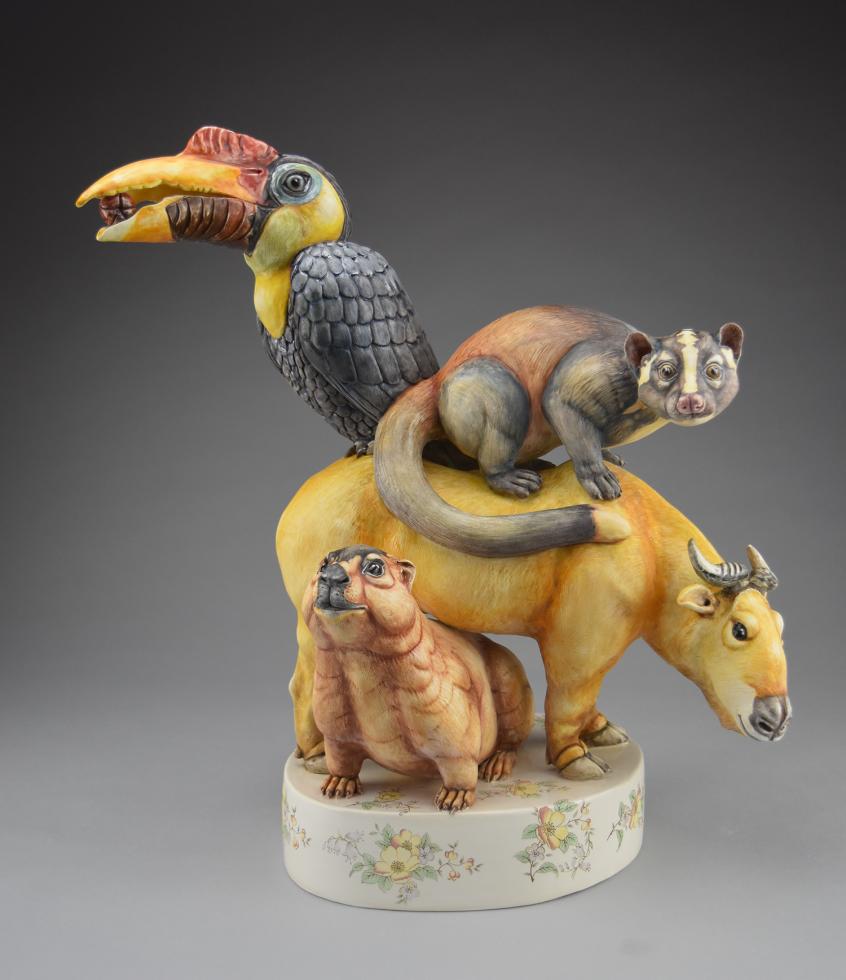
She and several other artists displayed their work at Donald Satterlee’s Curtis Park photography studio in September. Clements hung an array of her detailed ceramic primate masks and woodland-creature masks — raccoons, rabbits — as well as butterfly and pangolin ornaments.
“I do love primates,” Clements admits, and it’s evident in the number of different types that are her subjects. Her 15 years of working with wildlife informs her work and also mirrors her fascination with animals. “As a vet tech, you get to get really close to animals and understand what they look like, which is a perfect reference if you want to make art about animals.”
Clements says the hardest part of the business is common to many
other visual artists: “I’m shy. I don’t like promoting myself,”
but finds social media to be a useful tool in pushing past that
obstacle. (Photo courtesy of Julie Clements)
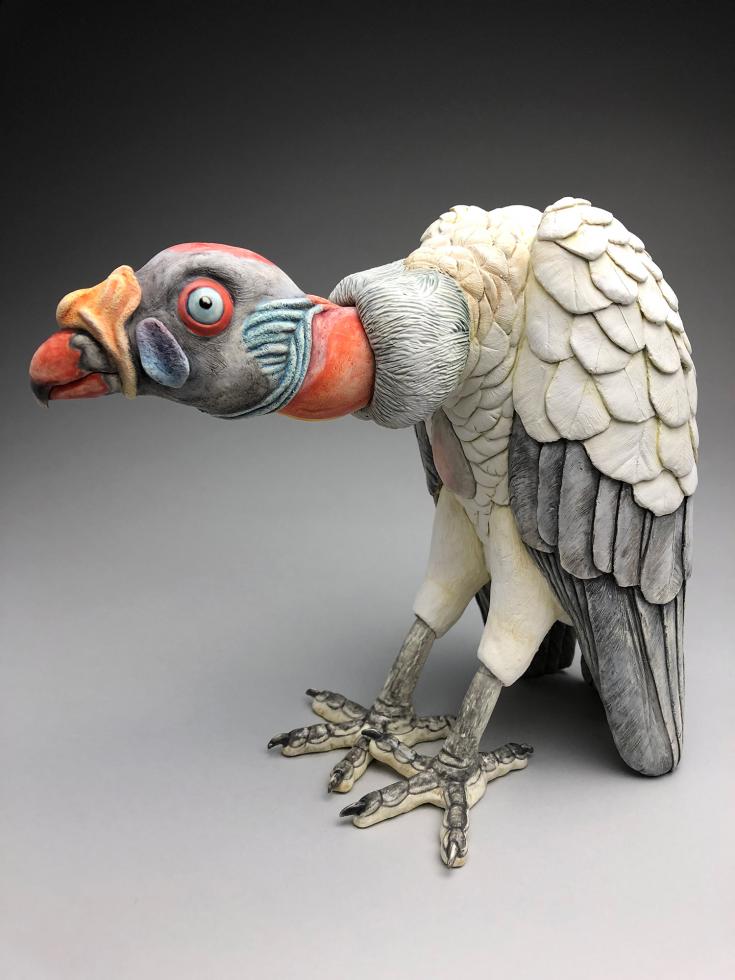
But Clements says she can make only so many smaller pieces. “I have a hard limit which I can only make X amount,” she says. “And especially with ceramics, there’s this stigma of being a gift shop artist vs. fine artist. It comes with a lot of baggage. And the value is different.”
Clements says she navigates this by affiliating herself and her work with galleries that “focus on ceramics so we can uplift the medium together” and takes into account “different markets have different values” and changes in the economy when pricing and selling her work.
“It’s super challenging being an artist in 2019 and trying to make a living,” she says. “I’m adapting. I can see my business growing every year. It’s a slow process, but I keep moving forward.” One of her biggest challenges is one common to many other visual artists: marketing. “I’m shy. I don’t like promoting myself. … But I’m pushing through. Social media has been great for that, and it’s also great that people are becoming more open about it being hard for them. I’m still faking it (laughs).”
“I’ve always been interested in wildlife and animals in general,”
artist Julie Clements says. In her piece “Ny Voalavo II,” a
tenrec, indri, giant rat and flatidae bugs share a boat ride.
(Photo courtesy of Julie Clements)
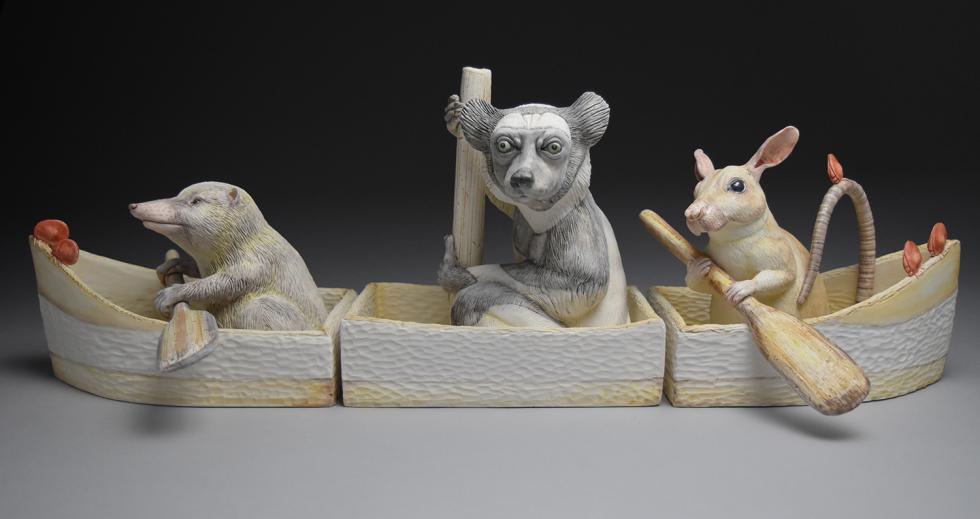
Why did you choose Sacramento as the place to begin your career as an artist?
It was a joint decision with my partner, Nathan. It’s a big enough city where Nathan could get a job and yet affordable enough that I could devote my time to art. We are close enough to the (Bay Area) that we can still go down for (Oakland) A’s baseball games. Being closer to the (Sierra Nevada) also has allowed us to get out in the woods more than we used to.
How could the city better support the arts?
A marmoset sits on a desk in Clements’ “Things Fall Apart.”
(Photo courtesy of Julie Clements)
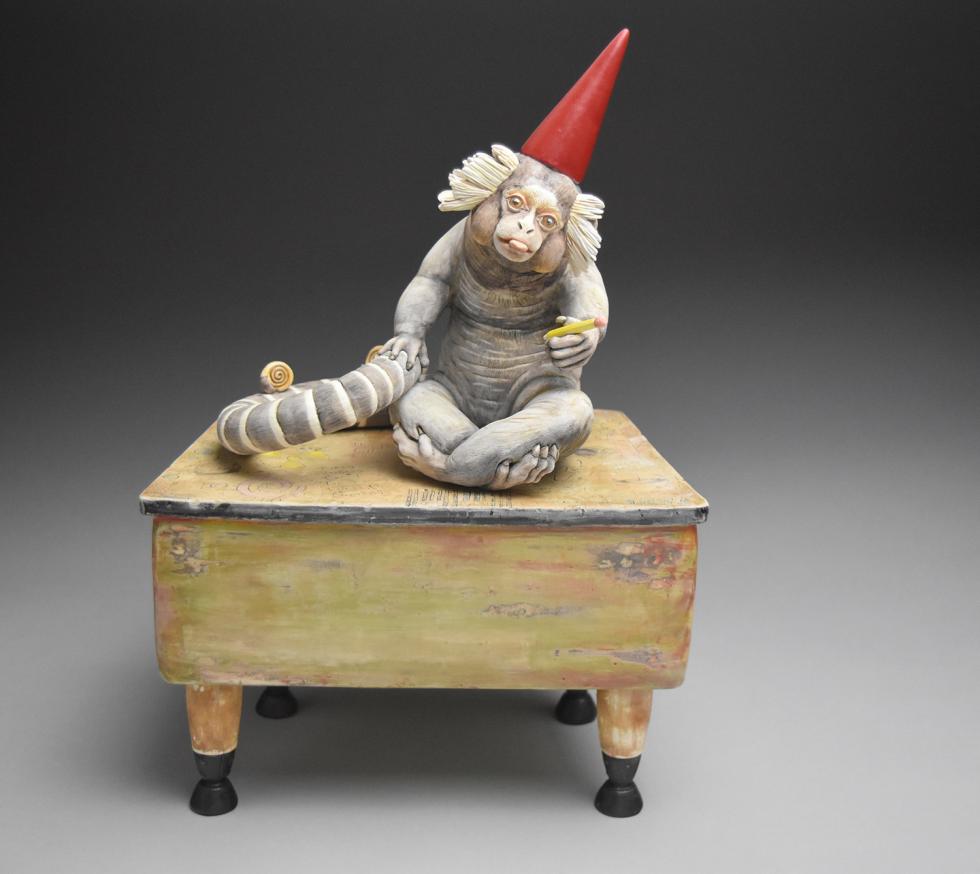
What is the most valuable advice you have received from other professional artists?
Make art that you love. Stay true to your art, or you will lose your inspiration. Learn how to separate yourself (your ego) from your art so that you can be self-critical. My favorite studio-artist-guidance advice was from a longtime friend who said, “Don’t wear your pajamas. Get up and get dressed.” It is so true. She also said, “Treat it like a job. Friday at 5 p.m., call it quits.” That one I have not mastered …
The Pence Gallery in Davis will show Clements’ “Rattus Rattus” in
its group show “Two Faced,” Oct. 4-28. (Photo courtesy of Julie
Clements)
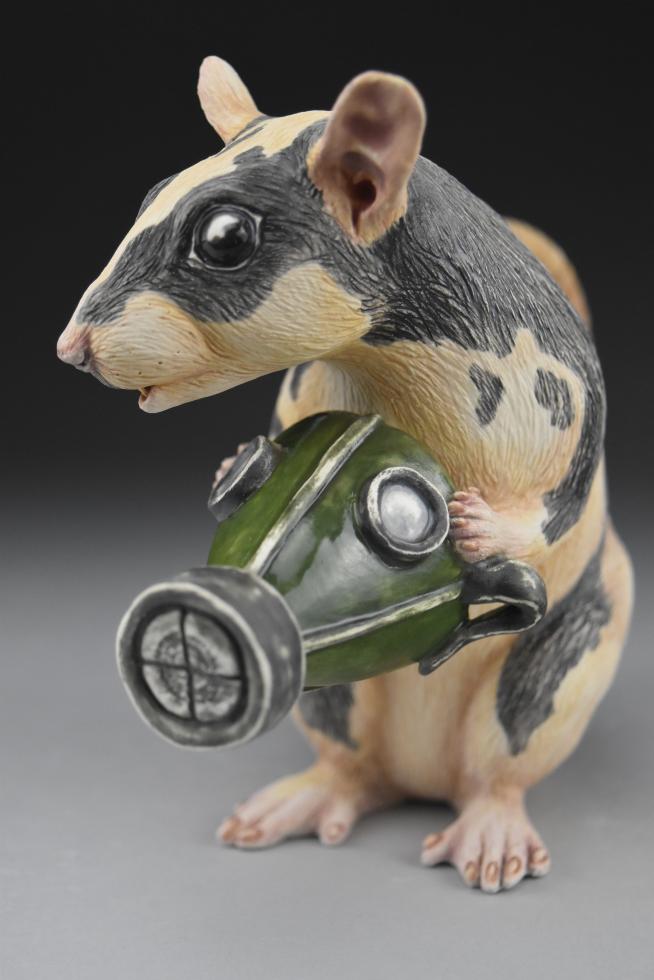
How has the art community helped support you?
Ceramic artists in Davis, Sacramento and the Bay Area region have been very supportive. I have been able to network with artists to share different opportunities. Being a professional artist is a bit of a unicorn sort of experience. Every artist seems to make up a career as (they) go. Just being able to see and hear how other artists are surviving is helpful.
Recommended For You
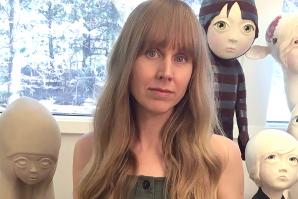
Art Exposed: Colleen Sidey
A ceramist in South Lake Tahoe reaps inspiration from her natural surroundings and motherhood, and ventures into opening a studio for the community with her husband
The charming effect of the forest finds its way into her ceramic sculpture, along with her greatest inspirations, her two children, ages 11 and 7, and her formative years being surrounded by the urban environment in Southern California.
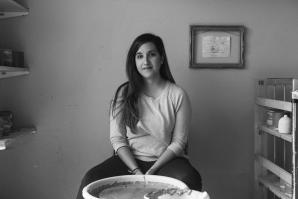
Art Exposed: Alejandra Calderon
Co-founder of Manjar Ceramics talks art, activism and entrepreneurship
When Alejandra Calderon narrowly escaped failing her ceramics class as a fine arts major at Sacramento State, she never imagined that seven years later she would co-own a ceramics business. At the time, she found the discipline to be frustratingly difficult compared to her primary passion, painting.
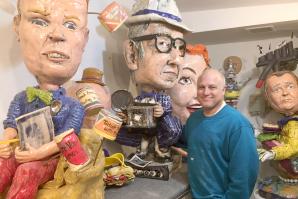
Art Exposed: Tony Natsoulas
Ceramic artist on creating and collecting in the Capital Region
Comstock’s sat down with Tony Natsoulas to talk about creating and collecting in the Capital Region.



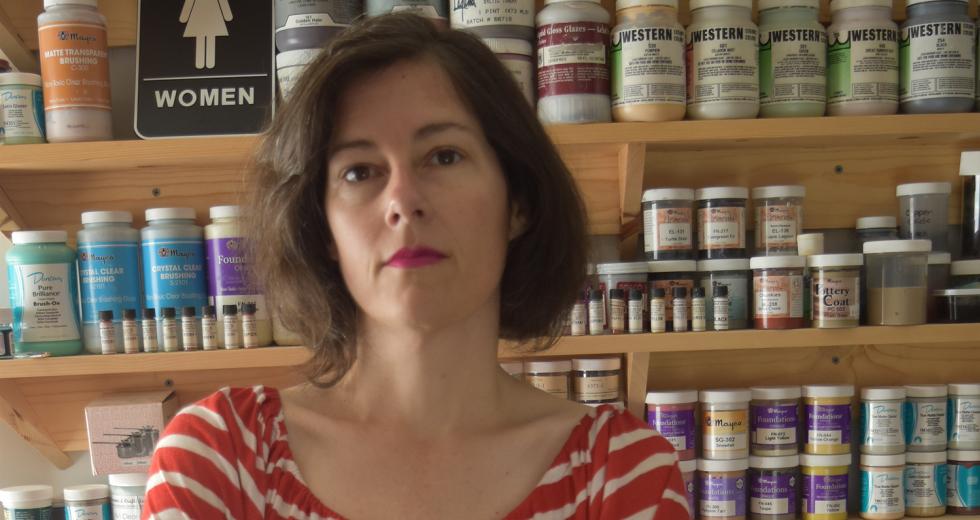
Comments
So proud of you and proud to be a friend!!!
Julie,
I love your work! Beautifully real. How awesome that you are doing what you love and sharing it with the world. Would love a piece of your art. Is there anywhere in little ole Georgia that I can purchase a piece? Continue to live your dreams❤️❤️❤️
Awesome work.
Congratulations Julie on your well deserved success! You have such talent in my opinion. May you enjoy continued success and make an impact with your art enhancing peoples appreciation for and the value
of animals.